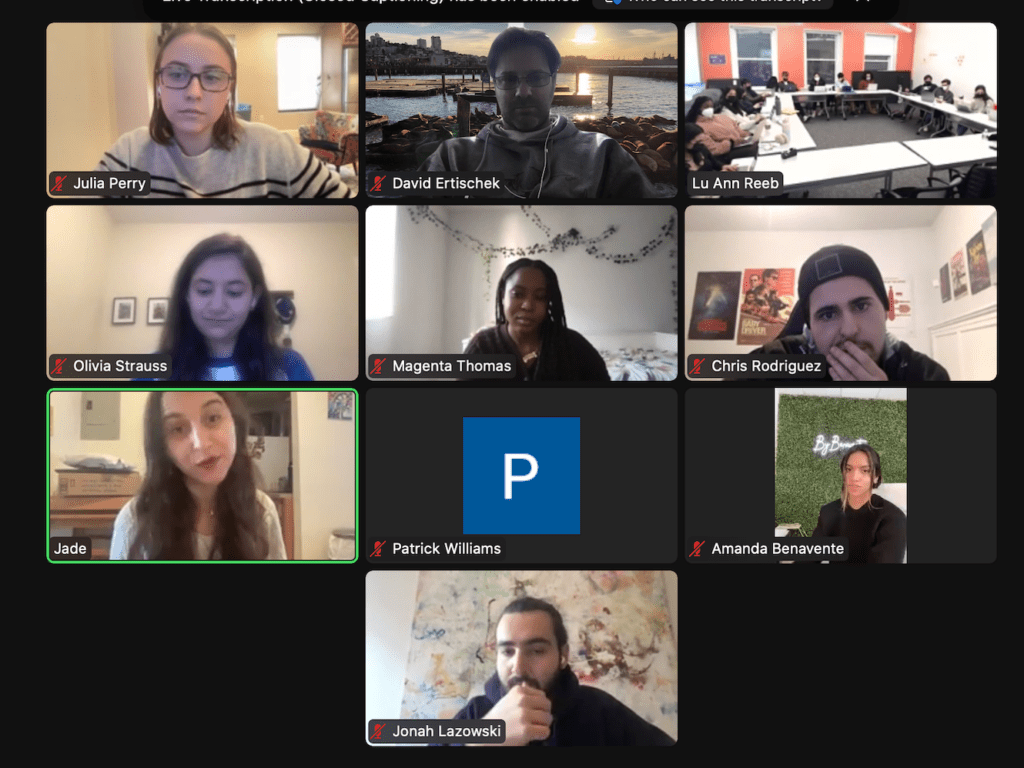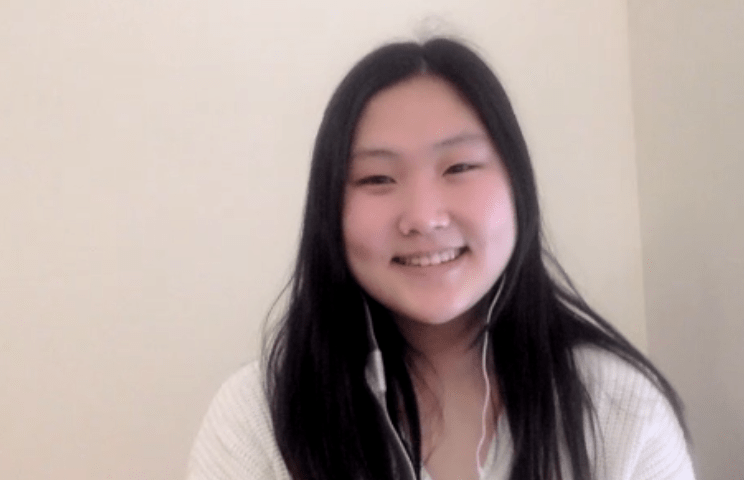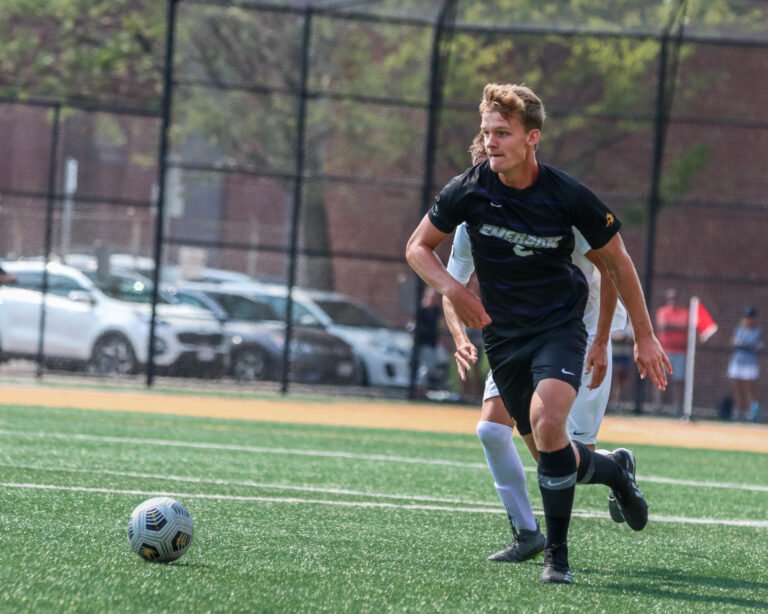The Moment Is Now for E3 Students
This article is part of a series following two students through the Emerson Experience in Entrepreneurship program, better known as E3. The first and second articles can be found on Emerson Today.
The E3 program presents Emerson College students with an opportunity that most entrepreneurs will never even have a chance to sniff. Two semesters of time dedicated to focus on their entrepreneurship idea is quite a carpe diem moment.
Another great facet of the E3 program is unfettered access to peers, professors, entrepreneurial experts, and more.
“You could treat [the E3 program] like another class and assignment to complete. But you get more out of it if you want to launch a business, and learn how to launch a business,” said Bo Feekins ’22. “We should use these resources because you don’t know when this opportunity will come along in the future.”

Early in the spring semester, recent E3 alums Zoomed into the classroom to provide updates on their career paths. Some have gone onto entrepreneurial endeavors, and others entered the corporate workforce.
“I wanted a prism of perspectives, not just on E3, but also the thinking process in E3 and how that manifests once you’re out in the real world,” said E3 Director Lu Ann Reeb. “Whether you’re working for someone like Julia Perry (’20) or Amanda Benavente (’20) who started her own social media company.”
Chris Rodriguez ’21 spoke about his E3 idea to create a canned mimosa company. But COVID put a leak in that plan, as it required promotion at live events. Instead he pivoted…
“I’m building a media company. That is very different from a canned mimosa,” said Rodriguez, whose first film, ‘Twas The Night, hit theaters and started streaming in December.
Seed of Change
Sunjin Chang ’23 found learning about recent grads’ experiences to be encouraging. She liked hearing about alums’ ability to pivot after graduating from Emerson.

Being flexible is vital to E3 students like Chang, whose business idea, Seed, continues to sprout. Chang’s most recent iteration of Seed is a company to connect corporations to users looking to work on small projects. Targeted users are young professionals in the beginning stage of their careers.
As Chang continues to flesh out her business idea, Reeb continued to drill home a very important part of a business plan meant to keep students focused.
“They’re probably tired of me saying, ‘Who’s your customer?’” said Reeb. “A foundational assignment is to create a customer profile.”
Chang conducted a focus group on the advice of Reeb, and heard that job satisfaction is a big issue for recent college graduates. Part of Seed’s draw is that users would be able to get a feel for a company’s culture while not working for them full-time.
“They’d join a company and realize this isn’t what they want to do,” said Chang. “That messes with retention rate for a corporation. For corporations, it will help them find the right people for what they need. It’s not just submitting a resume. Corporations can hire someone who matches what they’re looking for, and users can get a glimpse of an inside look at the company.”
Kickstarting an Idea

Like Chang, Feekins’ idea continues to evolve. A recently announced plan by the Premier League team Crystal Palace F.C.has helped Feekins build out his business idea more.
“Their new initiative is an aftercare program to basically address the issue of players ages 16 to 23 who aren’t quite good enough to make it to the pros,” said Feekins. “They get cut and released and have no fallback because soccer has been such a huge part of their lives. They fall into an area of what do they do?”
His business, the Kickstart Initiative, is a service that connects released academy players with universities in the U.S., providing resources and information to help create a clear pathway for young athletes.
Feekins expects more soccer teams to create aftercare programs for athletes not good enough to become pros. Feekins’ idea is to create a relationship with the teams to provide a conduit for those players who want to come to the U.S. to attend school and continue to play soccer.
“The biggest thing I’m going to try to do is reach out to Crystal Palace and touch base with members of their program and talk to them about their aftercare program and my idea and see where I get with it,” said Feekins. “It doesn’t need to just work at the university level. Kids get released at 14, 15, 16, and there are plenty of prep schools that provide tuition to players.”
Part of this semester’s assignments was for E3 students to interview three entrepreneurs or people working in the same industries as their business idea. All E3 students also virtually met with Jessie Coan ‘10 during the semester. Coan is an E3 alum, and started Jessie Coan Marketing after graduating. She provided a great sounding board, and offered real world advice to students.
Coan said she liked Chang’s idea of “trying before buying” for users to get a taste of a company’s culture. She and Chang discussed the nuances of being a freelancer, internships, shadowing, and where Seed fits.
“I think you have a lot of opportunities to shape this and what the needs are with what you’re passionate about,” said Coan to Chang via Zoom. “Think through the problem of what you’re trying to solve. What is it that this solves?”
Coan then asked if it would be useful to go through a priority list with Chang, which Chang obliged. Coan advised Chang to start with a problem statement, walk through how the problem statement looks at the targeted customers, who might want to purchase it, and then go talk to who fits that customer profile.
Before their conversation ended, Coan provided her email address again in case Chang wanted to run anything by her.
“I know it’s hard to pivot in the middle of the semester. It can be overwhelming. I get it,” said Coan. “To be perfectly honest with you, this is how building a company works. How to really figure it out and what to hone into. Welcome to the rollercoaster of entrepreneurship.”
Categories